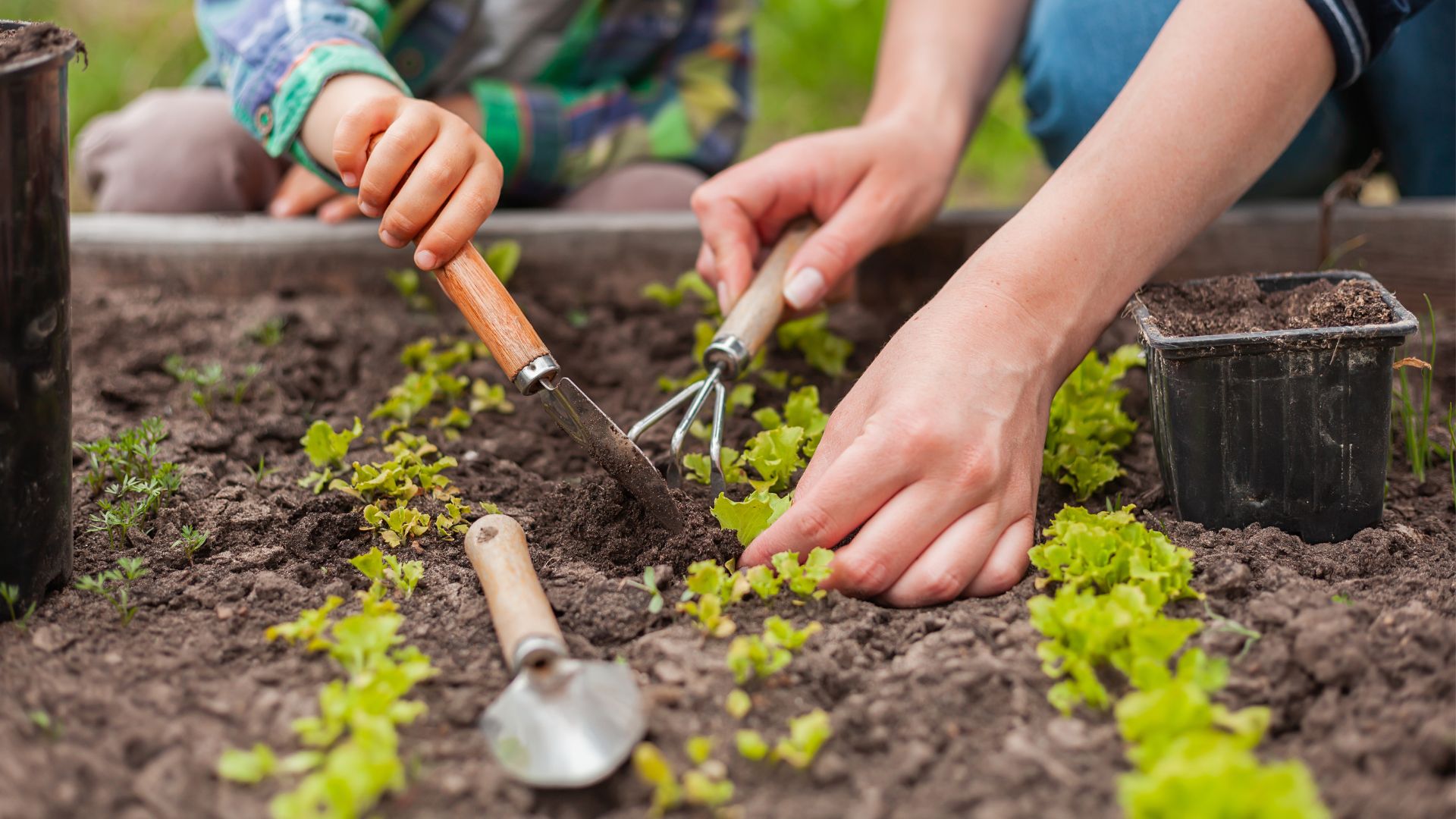Slugs and snails love to eat succulent leaves, flowers, seedlings, and fruits such as tomatoes and strawberries. Moreover, they multiply quickly, potentially decimating new plantings. Each snail or slug can lay up to 100 eggs in a clutch, as many as six times per year.
For anyone who values their garden’s greenery, managing snail and slug infestations is a priority. Yet slug- and snail-killing pesticides frequently contain metaldehyde, which is poisonous for children and pets, and/or carbaryl, which is toxic to beneficial insects and earthworms in the soil.
So what’s an eco-aware green thumb to do? We recommend using copper mesh for slugs and snails in your garden.
What Does Putting Copper in Your Garden Do To Slugs and Snails?
One common theory is that copper gives them a small electric shock through the slime trail—the mucus that keeps these gastropods moist and facilitates their slithering. When a snail or slug’s mucus comes in contact with copper, the animal may receive a neurological disruption akin to a shock.
A second theory is based on the biochemistry of blood. All animals in the Mollusca group—also known as gastropods—use hemocyanin proteins in their blood to transport oxygen. (You may recall from your biochemistry class that human blood uses the respiratory protein hemoglobin, which is iron-based.) This means snails and slugs are very sensitive to copper because in excess it prevents respiration. If they taste copper, scientists hypothesize, the resulting experience is like suffocating, and gastropods naturally turn away.
As you can see in this time-lapse slug and snail video, the majority of snails and slugs will avoid copper, assuming the copper strip is wide enough. A narrow strip of copper will not stop slugs and snails as they will simply climb over it. Wire hardware mesh with narrow openings works well as slugs and snails cannot surmount the copper.
Benefits of Using Copper Mesh to Deter Garden Snails & Slugs

Eco-Friendly Pest Control. Avoid exposing your soil, pets, and your family to hazardous pesticides. Copper is an effective and non-toxic form of gastropod pest control.
One-Time Application. Don’t waste your precious time battling gastropods in your garden. Simply mount copper mesh to the external face of each garden bed once to enjoy years of resulting snail and slug repellent.
Attractive Appearance. A well-kept garden is a delight for the eyes. This form of gastropod pest prevention can add beauty to your landscape while protecting your plants.
Vertical Gardening Support. Gardeners who are low on space can use copper mesh to expand their gardening space vertically. In this case, plant support doubles as pest control.
How Do You Use Copper Wire in the Garden for Slug/Snail Control?

You can create a wire mesh fence around your plantings. Or, if you prefer raised beds, you can mount copper mesh hardware cloth on the external surfaces to prevent snail and slug entry. Whatever copper you use, be sure it is unplated. Once your copper mesh barrier is erected, look out for plant “bridges.” Slugs and snails can cross from plant to plant using stems as bridges or ladders, so keep an eye out for any possible connection between your garden bed and nearby plants.
Browse & Shop Copper Hardware Cloth Online at TWP Inc.
Copper wire mesh is a versatile material that can be used in various applications, from pest control and gardening to cabinet inserts and jewelry design. Regardless of how you plan to use it, we can help you every step of the way! Want to discuss your project? Interested in custom laser cutting to save time and money? Contact our experts for assistance.
Ready to get started on your slug and snail exclusion project? Request a free quote for materials today.
Once your slug and snail barrier is complete, snap a pic and tag it with #TWPWireMesh to inspire other gardeners!




